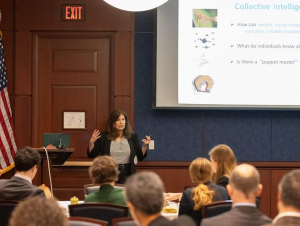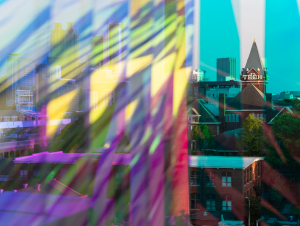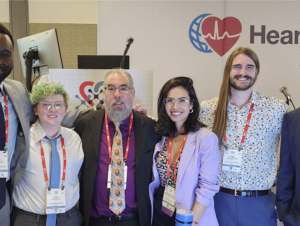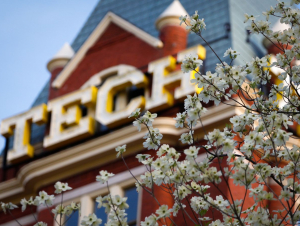To request a media interview, please reach out to experts using the faculty directories for each of our six schools, or contact Jess Hunt-Ralston, College of Sciences communications director. A list of faculty experts is also available to journalists upon request.
Latest News
School of Mathematics Adjunct Professor Dana Randall, a leading authority in the field of mathematics, recently delivered a Congressional briefing on the crucial connections between mathematics and national priorities.
The Center for Teaching and Learning (CTL) and the Office of Academic Effectiveness (OAE) are thrilled to announce the Spring 2024 Course Instructor Opinion Survey (CIOS) Honor Roll. Faculty members at Georgia Tech who made the Spring 2024 Honor Roll have been celebrated by their students for outstanding teaching and educational impact.
The award recognizes “honors a scientist or clinician who has made a significant and unique contribution to the field of cardiac pacing and electrophysiology," and recognizes Fenton's groundbreaking research, which uses physics to better understand how the heart functions — or malfunctions, in the case of arrhythmias.
273 academic and research faculty members from across the Institute received promotions during the spring semester. We are thankful for their contributions and honored to celebrate their accomplishments.
With NSF support, Colleges of Sciences and Engineering will collaborate to hire a researcher focused on solar-terrestrial science and space weather.
Asthma impacts more than 10% of the world’s population, but current anti-inflammatory treatments only partially control the disease. Now, with a $2.47M grant, Liang Han is exploring the role our nervous systems play, potentially leading to new treatments.








